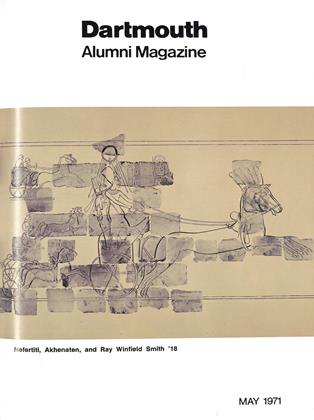Cudworth, no one who watched that thick-set, slowly sinking bonehouse, your body,
Lost a little deeper in its plot Under its owl-like glasses that barely refracted the slip of the stars And in these unreasonable latitudes no one Who felt your forehead and shoulders stooping a little lower Each year into the long wind that blows from the winter solstice Crying towards the equinox whose crocuses are still frozen, Would let his tongue take a Mediterranean leap and sing With Browning, incurable romantic behind the mask of his beard, "Here was a man with thy head and throat, O lyric Apollo." No one watching you sitting like stone at a feast Could dream, even through the finest fumes of vine, your figure Springing to dance with the shade of a grace or the shadow of a muse. But who in his short sighted time sees through the wall that walks discretely in front of him
And blinds him, even in friends, to the inner room which Blake— That fiery ghost whose tongues were always at home on your hearth— Called the immortal part of man, the imagination, never Stronger than when death has struck the time to come?
For as you never boasted, yet secretly knew—one divined it In the gentle sunrise of the smile which your midnights of clocks Had endured to win from the widening breach in your heart— The living arteries within your hardened ones Kept time with the light pulse of the poets, You breathed not only their subtlest bird-shadows and airs, but Their seas and their mountains, and had your kind of kinship With the goddesses whom they served in the defiant obedience of their music. Sometimes, when you held a page of poetry an inch from your straining eye To stare—listening, through the letter, the word, the book, for The beauty both of inflections and innuendoes—one could catch As the wings of blackbirds flashed to the edge of the imagined mirror before you The motionless owls of Minerva staring back their approval: They saw you in their reflection, one of the wise who knew why their mistress Had, with the bridle of magic silver, mastered the dark dragon-fire of Pegasus And made him a carrier of copers with chimeras, of questers for the ceiling of light.
For though you died as you lived, Cudworth, alone with your courage, Leaving no wife, no daughter or son, yet to us You deed the trove of your ancestry: your true descent Beyond all those exemplary American patriots like Patrick
Henry and various New England divines or Oregon pioneers Was Mediterranean just the same—your first ghostly father Came dancing down from the holy mountain whose name hangs Like a snow-cloud over the horizon, and is always vanishing Into paper or a mouthful of easy morphemes, but which still On an April morning is alive and terrible in the flesh As it soars glistening above the steep slope from which Delphi With its sacred spring and ruined treasuries is forever About to slip 2,000 feet straight down toward the sea Above the vapors that steamed from the earth as the Pythia poured forth The oracular ambiguities which even then Intoxicated the wise men and took their money— Since the only escape from the ancient flood, at least from one Of the ancient floods, the one I am talking about, because It keeps coming back, is to stand on the freezing, lightning-dazzled Top of Parnassus with the son—or to remember you, Cudworth, The sons of the sons—of Prometheus and, beginning alone With stones, start humanity again.
NOTE: At the beginning of the memorial service at which the above poem was presented, Professor Terrie had read aloud "Thirteen Ways of Looking at a Blackbird by Wallace Stevens, one of Professor Flint's favorite poems. Section V begins: I do not know which to prefer,/ The beauty of inflections/Or the beauty of innuendoes ...
 View Full Issue
View Full Issue
More From This Issue
-
 Feature
FeatureNefertiti, Akhenaten, and Ray Winfield Smith '18
May 1971 By John R. Scotford Jr. '38 -
 Feature
FeatureThe Dartmouth Institute
May 1971 -
 Feature
FeatureTrustees Vote to Consider Associated School for Women
May 1971 -
 Article
ArticleThe Undergraduate Chair
May 1971 By JOEL ZYLBERBERG '72 -
 Article
ArticleFaculty
May 1971 By WILLIAM R. MEYER -
 Article
ArticleHanover's Famous May "Murder"
May 1971








